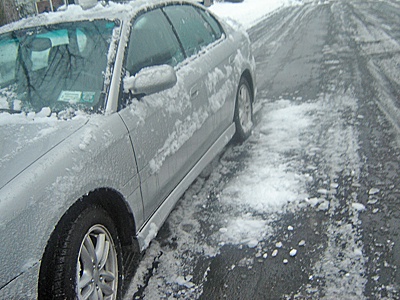All Nonfiction
- Bullying
- Books
- Academic
- Author Interviews
- Celebrity interviews
- College Articles
- College Essays
- Educator of the Year
- Heroes
- Interviews
- Memoir
- Personal Experience
- Sports
- Travel & Culture
All Opinions
- Bullying
- Current Events / Politics
- Discrimination
- Drugs / Alcohol / Smoking
- Entertainment / Celebrities
- Environment
- Love / Relationships
- Movies / Music / TV
- Pop Culture / Trends
- School / College
- Social Issues / Civics
- Spirituality / Religion
- Sports / Hobbies
All Hot Topics
- Bullying
- Community Service
- Environment
- Health
- Letters to the Editor
- Pride & Prejudice
- What Matters
- Back
Summer Guide
- Program Links
- Program Reviews
- Back
College Guide
- College Links
- College Reviews
- College Essays
- College Articles
- Back
Younger Drivers
People should be able to get behind the wheel two years earlier than they are able to do now. A younger driving age seems like it would raise a large amount of issues; after all, younger kids don’t generally get a job at that age, and thus, if they crash parents would have to pay for it. But what if younger kids could reduce the amount of crashes instead of increase them?
With kids learning to drive at a younger age, parents would be less occupied with driving their children to school performances, or worrying about carpools. Instead, parents could sit down and read a book (or watch shows, I won’t judge!) without worrying about being late to pick up their children from an activity like hide-and-go-seek in Ikea if they got kicked out. With kids being able to drive, they could help parents out if they had a meeting for work, or needed to meet with a friend, and forgot to pick up groceries for dinner. With younger driving ages parents wouldn’t be as stressed or occupied with their children's needs.
Having a younger driving age would also allow for drivers to have more practice with driving before they go to college, when they really need to drive. With more practice, college students would be able to safely drive to and from school without as much fear of crashing. With younger drivers, they would learn to drive and have years of experience with driving before they start driving at two in the morning. Because of the curfews young teens have, they would be able to be more alert when driving, and get a better sense for what drivers and roads are like. As my dad said “It takes two people to make a mistake for a crash” Let’s try and minimize the amount of people who don’t know what to do in a accident, shall we? Putting younger kids on the road earlier would mean smarter drivers with more practice.
Younger drivers are generally well… younger, and with being younger that also means that those drivers would be at a lower grade level. But that means younger drivers would also have less of an academic education! That would be utterly catastrophic! I mean, if they would know geometry or trigonometry instead of algebra, obviously it would make a difference! Honestly though, what would knowing algebra or trigonometry make a difference in how they would drive? Sure, maybe they might realize that “if I pick this angle instead of this angle a crisis could be completely averted! But we all know that only happens in movies, thus nullifying any difference between geometry and algebra. All joking aside, a lot of people think that a less developed brain from being younger could cause a bad decision to be made, like trying to text and drive, or not looking in a area when backing up. But even experienced drivers do this, so why would younger drivers increase the amount this happens?
Younger drivers will mean less drunk driving. While younger drivers might have a less developed brain than a older driver, parents and teachers have more of an impact on younger kids that older teenagers. This means that when a parent tells a kid that drinking is bad, younger kids will be more inclined to listen. If kids have more years with driving before they start wanting alcohol, they could see the risks before having to ‘try’ it themselves. Generally, younger kids don’t have the height to look older or the money to be able to get alcoholic drinks illegally, as some college students might attempt, thus reducing the amount of drunk-to-sober drivers.
Younger drivers would make the roads safer. When drivers start earlier they gain more experience before having to drive in more challenging conditions such as night or four hour drives. Younger drivers would be better for families, allowing families to relax and friends to go and see movies. What's holding everyone back from this? Get these kids their licenses!

Similar Articles
JOIN THE DISCUSSION
This article has 0 comments.
